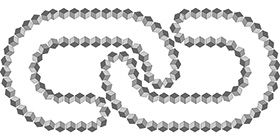

Sherlock, an enterprise-ready smart construction contract management and administration solution developed by South African company, DoshEx, has been announced as one of the top three entrants in the 2020 IBM Beacon Award category, Blockchain Trailblazer. As far as its creators are aware, Sherlock is the first solution of its type globally.
The IBM Beacon Awards recognise IBM business partners around the world who create outstanding solutions and spark innovation using IBM products and technology. Sherlock brings together Internet of Things (IoT), distributed document management and Blockchain to improve the management of construction contracts.
DoshEx CEO Alex de Bruyn explains that Sherlock was developed with the construction sector in mind, but has potential applications in industries ranging from mining to pharmaceuticals and agriculture. Given Sherlock’s modular nature, its uses include smart contract administration for capital build projects, supply chain track and trace and condition monitoring, access management, proof of presence, safety and compliance management, milestone monitoring and payment certification.
Blockchain technology for the construction sector
“A blockchain governs the need for trust or for trusting a third party,” says De Bruyn. “My background is in banking. A few years back, I became convinced of the value blockchain technology could offer. I wanted to find an industry where the trust deficit was large enough for the technology to make an impact – a problem big enough for blockchain to solve.”
De Bruyn partnered with Richard Creighton, formerly MD of Honeywell Africa and now commercial director at DoshEx. Together, they saw the potential for using blockchain technology to overhaul contract management in the construction sector, which is rife with trust issues.
“I’ve been involved with numerous large capital builds and what always struck me was the amount of waste,” says Creighton. “Let’s say there were 10 parties involved. That meant 10 people keeping a set of the project’s profit and loss records, 10 sets of the master programme (which defines the project schedule), 10 registries for document control and so on. It was obvious to me that if we could put a system in place that would allow everyone to collaborate and access a shared ledger that represented an holistic picture of the job, we would all save time and money and be far more efficient. This is what Sherlock is designed to do.”
De Bruyn and Creighton started by examining all the trust issues endemic to the construction sector. These range from lack of trust between participants in the value chain (e.g. between developers, contractors and sub-contractors) to a lack of transparency of a project’s true health. Compliance – both with designs and codes or standards and with health and safety requirements – is an ongoing problem. Other challenges include scope creep and a lack of accountability that results in disputes or even mismanagement.
Sherlock provides a smart contract management network, using blockchain and distributed technology to increase transparency and reduce the reliance on trust in a network and IoT to create a trusted device to gather accurate data on real-world events. This network runs on the IBM Blockchain Platform, underpinned by Linux Foundation’s Hyperledger Fabric. It can be used with existing construction contracts for capital project builds in the industry such as JBCC, NEC and FIDIC as well as custom fit-for-purpose smart contracts.
“The smart contract makes certain data transparent to everyone involved across the project, while protecting confidential commercial agreements between specific parties,” says De Bruyn. “Data is captured in the field and is reported in near real-time on Sherlock.”
This ensures that everyone on a project has a single view of the truth. There are no longer issues of version control on drawings, questions around sign-off, or disputes regarding payment processes.
Robust in-field biometric devices are used to capture data such as milestones, compliance checks, or sign-offs, while IoT devices are used to monitor specific events to self-execute contractual agreements. For example, once a specific contractual milestone is captured, a related payment instruction process can automatically be triggered.
Creighton concludes that measurement activity is greatly optimised and the stakeholder cost take-out far exceeds the Sherlock system costs.

© Technews Publishing (Pty) Ltd | All Rights Reserved